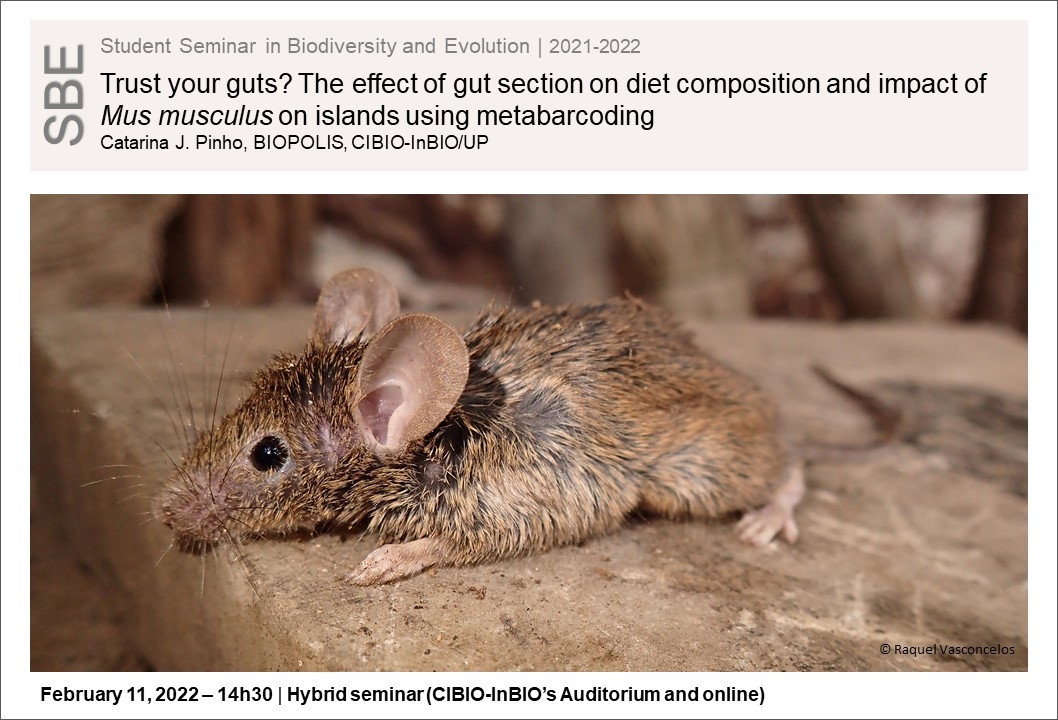Trust your guts? The effect of gut section on diet composition and impact of Mus musculus on islands using metabarcoding
11 Feb 2022 - Catarina J. Pinho, BIOPOLIS, CIBIO-InBIO/UP | 14h30

STUDENT SEMINAR IN BIODIVERSITY AND EVOLUTION
DNA metabarcoding is widely used to characterize the diet of species, and it becomes very relevant for biodiversity conservation, allowing the understanding of trophic chains and the impact of invasive species. The need for cost-effective biodiversity monitoring methods fostered advances in this technique. One question that arises is which sample type provides a better diet representation. Therefore, with this study, we intended to evaluate if there were differences in diet estimates according to the section of the gastrointestinal tract analysed and which section(s) provided the best diet representation. Additionally, we intended to infer the ecological/ economic impacts of an invader as a model of the potential effects in an originally mammal-free ecosystem. We examined the gut contents of the house mouse Mus musculus introduced to Cabo Verde, considering three sections: stomach, small intestine, and large intestine. We applied a DNA-metabarcoding approach using two genetic markers, one for plants and another for invertebrates. We showed that this invader consumed 131 taxa (73 plants and 58 invertebrates). We obtained significant differences in the composition of two of the three sections, with a higher incidence of invertebrates in the stomach and plants in the intestines. This may be due to stomach inhibitors acting on plants and/or to faster absorption of soft-body invertebrates compared to the plant fibres in the intestines. The impact of this invader in the ecosystem is predominantly negative, as at least 50% of the ingested items were native, endemic or economically important, and only 19% of the diet items were exotics. Overall, results showed the need to analyse only two gastrointestinal tract sections to obtain robust diet data, increasing the cost-effectiveness of the method. Furthermore, by uncovering the native taxa most frequently preyed on by mice, this DNA-metabarcoding approach allowed us to evaluate efficiently which are at the highest risk.
Catarina J. Pinho is a 3rd-year BIODIV PhD student working under the supervision of Raquel Vasconcelos (CIBIO-InBIO), Brent Emerson (IPNA-CSIC) and Prof. Paulo Célio Alves (CIBIO-InBIO). Her research work mainly focuses on taking advantage of DNA metabarcoding techniques to characterize the diets of threatened Cabo Verdean endemic reptiles and exotic species to obtain valuable ecological information for biodiversity conservation. Furthermore, in her thesis, she aims to test if character displacement is driving speciation and subsequent morphological and ecological adaptations within three sympatric Cabo Verdean reptile species pairs.
[Host: Raquel Vasconcelos, Conservation Genetics and Wildlife Management - CONGEN]